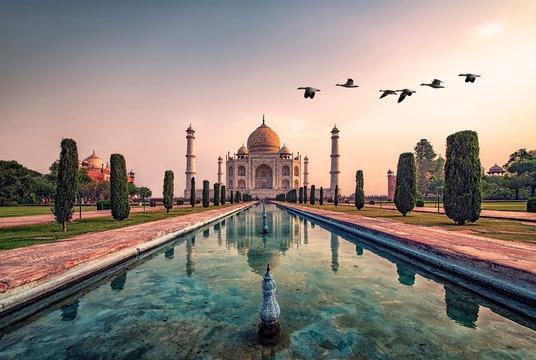Former Congress leader Rahul Gandhi has raised serious concerns about the state of Indian democracy during his visit to Colombia, describing what he calls an “attack on democracy” as the country’s biggest threat. Speaking to international audiences, Gandhi highlighted challenges facing India’s democratic institutions and warned of rising authoritarian tendencies. His remarks come amid ongoing political debates back home, drawing attention to issues of freedom, governance, and civil rights in the world’s largest democracy.
Attack On Democracy Poses Serious Challenge To India Says Rahul Gandhi
Rahul Gandhi, while addressing a forum in Colombia, expressed deep concern over recent developments that he described as an alarming “attack on democratic values” within India. Highlighting the erosion of freedoms and undermining of institutions, he warned that such actions present the gravest threat to the nation’s unity and progress. Gandhi emphasized that democracy itself is under siege when basic rights such as free speech, judicial independence, and electoral transparency are compromised.
He outlined several key areas where democratic principles are being challenged, including:
- Restriction of press freedom and increasing censorship
- Politicization of key constitutional bodies
- Intimidation of civil society and dissenters
- Undermining of the federal structure and regional autonomy
According to Gandhi, safeguarding democracy requires immediate and collective action across all sections of society to restore trust and uphold the rule of law.
| Democratic Element | Current Challenge | Potential Impact |
|---|---|---|
| Press Freedom | Increasing censorship and control | Reduced accountability |
| Judiciary | Political influence in appointments | Compromised impartiality |
| Civil Society | Intimidation and restrictions | Weakened democratic activism |
| Federalism | Central dominance over states | Diminished regional autonomy |
Detailed Analysis Of Democratic Backsliding In India Amid Political Turmoil
India’s democratic fabric is showing signs of strain as intensified political conflicts and centralized power structures raise alarms among civil society and opposition leaders. The latest remarks by Rahul Gandhi in Colombia highlight growing concerns about the erosion of democratic norms, which many observers view as symptoms of a broader trend of democratic backsliding. This process is characterized by the increasing marginalization of dissenting voices, curbs on freedom of the press, and the manipulation of institutional checks and balances designed to safeguard democratic governance.
Several key factors are contributing to this degradation:
- Concentration of executive power: Decision-making is increasingly centralized, limiting transparency and accountability.
- Weakening of independent institutions: Bodies such as the Election Commission and judiciary face allegations of compromised autonomy.
- Restrictive media environment: Journalists encounter growing pressure through legal and extralegal means.
- Polarization of civil society: Rising social divisions have fractured consensus and amplified political violence.
| Dimension | Indicator | Recent Trend |
|---|---|---|
| Political Participation | Voter Rights & Representation | Under strain due to electoral reforms and restrictions |
| Media Freedom | Press Independence | Declining with increased censorship and ownership concentration |
| Judicial Autonomy | Independent Decision-Making | Challenges amid political interference allegations |
| Rule of Law | Enforcement Equality | Uneven, favoring political elites |
This multi-dimensional decline poses a critical challenge to India’s democratic resilience. The ongoing political turmoil, both domestically and in its global perception, risks undermining the foundational principle of checks and balances. Without urgent reforms and renewed commitment to democratic norms, the trajectory may lead to prolonged instability and diminished global standing.
Recommendations For Strengthening Democratic Institutions And Upholding Constitutional Values
Ensuring the independence of key institutions is paramount for a vibrant democracy. Rahul Gandhi emphasized the need for impartial judiciary, autonomous Election Commission, and a free press that can hold power to account without fear or favor. Strengthening these pillars will safeguard against any attempts to undermine democratic norms and constitutional governance. Additionally, fostering transparency in government operations and promoting civic education will empower citizens to actively participate in democratic processes and hold their leaders responsible.
Key measures proposed include:
- Regular accountability audits of public institutions
- Legal safeguards to prevent executive overreach
- Enhancement of whistleblower protection laws
- Encouragement of inclusive policy debates to reflect diverse voices
| Institution | Recommended Action | Expected Outcome |
|---|---|---|
| Judiciary | Ensure appointment transparency | Maintain judicial independence |
| Election Commission | Strengthen regulatory autonomy | Fair and free elections |
| Media | Protect press freedom | Unbiased news coverage |
| Legislature | Promote bipartisan dialogue | Consensus-driven policymaking |
The Conclusion
Rahul Gandhi’s remarks in Colombia have once again brought into focus the deepening concerns about democratic integrity in India. As political discourse intensifies both domestically and internationally, his characterization of the “attack on democracy” as the nation’s biggest threat underscores the urgency of safeguarding democratic institutions. The ongoing debate highlights the challenges facing India’s democratic framework and signals a critical moment for stakeholders committed to upholding the country’s constitutional values.



